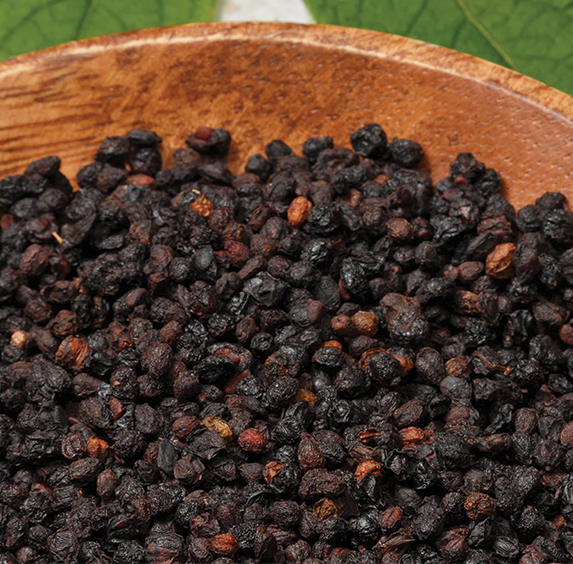Elderberry (sold by weight)
- Regular price
-
$0.60 - Regular price
-
- Sale price
-
$0.60
Elderberry
Sold by weight
Price is for one gram (one ounce is a little over 28 grams)
Elderberry is the fruit of the elder tree, a flowering shrub in the honeysuckle family. Because the wood of the tree was once commonly used to make pipes, the plant is also known as pipe tree.
Although the tart berries improve in flavor with cooking, the leaves and stems are toxic. The highly fragrant flowers, however, are also used in cooking and to produce skin lotions and other cosmetics. Both infusions of the berry and flower are traditionally used to soothe minor skin irritations, while elderberry juice and syrup are typically taken at the first sign of a cold or the flu. They are known to have antioxidant properties, offer immune system support, have anti-inflammatory effects, and help support digestive and cardiovascular health.
The small berries have a tart flavor that works with most tea herbs and citrus.
Elderberries are high in vitamin C (52.2 milligrams per cup) and dietary fiber (10.2 grams per cup). One cup of elderberries also has roughly 26.7 grams of carbs, 0.7 grams of fat and 1 gram of protein
To Europeans, the elder tree was thought to possess magical powers due to being inhabited by a tree spirit known as Elder Mother. For this reason, the wood was often used to make dowsing rods and other instruments for divination purposes. The long-standing tradition of paying homage to the Elder tree is conveyed in an old Austrian adage: Tip your hat to the elder.
Ingredients: ^Elderberry (sambuca nigra)
^wild crafted
Directions:
Steep 1 tablespoon in 10 ounces of water (208˚) for 15 minutes to make elderberry tea. Add honey or cinnamon for taste, if desired.
Storage:
Keep in a sealed storage container in a cool, dark place.
Sourced from: Herb Co.
Grown in: Bulgaria
Couldn't load pickup availability


Elderberry (sold by weight)
- Regular price
-
$0.60 - Regular price
-
- Sale price
-
$0.60


